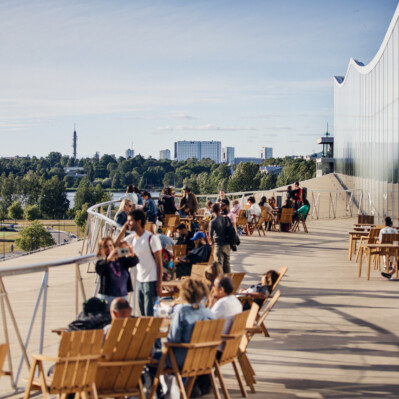“Climate change is a global crisis that will not be solved through quick fixes. It is a crisis that the COVID19 -pandemic has not cancelled or slowed down. Our priority must be to stick to the global climate goals and be even more ambitious in our actions. Instead of agreements or statements we need systemic changes and actions with real impact.
Despite the current situation caused by the pandemic, the City of Helsinki keeps investing heavily in its climate work. We are working towards a carbon neutral Helsinki and we will not let the work wait until the coronavirus crisis has blown over. All our climate efforts continue at full strength. Re-building is firmly rooted in green targets.
Our mission is to be carbon neutral by 2035. This ambitious goal requires technological breakthroughs, commitment to true smart city ideology and above all – determined, real action at every level of the city organization.
Helsinki Energy Challenge is an example of how action must be put to the heart of this transformation. We opened this international, one million euro challenge competition few monts ago. Our goal is to find innovative solutions, by means of which the city can be heated in a truly sustainable way during the upcoming decades – without coal and with as little biomass as possible.
With Helsinki Energy Challenge, we invite innovators from all around the world to use Helsinki as a testbed for truly sustainable solutions for urban heating. The idea of a city as a testbed is fundamental to my strategy as Mayor to make Helsinki the most functional city in the world. Now we test this principle to new limits. This comes with a risk but the urgency of climate action justifies bold decision-making.
The role of cities in the fight against climate crisis is decisive. Here are a few things to consider:
Over half of the world’s population lives in cities, and this is likely to increase to over two thirds by 2030.
Two-thirds of the world’s energy is consumed in cities and cities account for more than 70% of global CO2 emissions.
Heating buildings and cities leaves a huge carbon footprint. Urban heating systems of today generate enormous CO2 emissions globally. Fossil fuels are still the dominant energy source in district heating & cooling globally.
According to the Paris Agreement, greenhouse gas emissions must be reduced with 40% globally by 2030, in order to avoid a catastrophic climate change scenario. For a truly sustainable scenario, we need to reduce the emissions to zero.
To achieve the necessary emission reductions, decarbonizing urban heating is essential.
Cities have the capacity and the responsibility to lead the transition to a low carbon future. Countries cannot do transition fast enough; cities are needed to drive the change. What the cities do individually and especially in co-operation with each other and with national governments to address climate change, can set the agenda for governments everywhere.
Tackling global challenges requires innovative and bold actions. It also requires completely new set of skills and ways of thinking.
Helsinki is one of the leading cities in the transition towards a sustainable future, with the goal of becoming carbon-neutral by 2035. We foster a holistic view on climate action. Every action in Helsinki is a climate action. Carbon Neutral Helsinki 2035 plan across all city functions, contains 147 actions that enable Helsinki to reach the ambitious goal.
Significant progress has already been made. In 2018, Helsinki’s emissions were 28% smaller than those in 1990, even though the number of residents had increased by 150 000. Per resident, the emissions were approximately 45% smaller. This progress is significant, but not enough.
Currently, 56% of our carbon dioxide emissions comes from heating; still today, 53% of Helsinki’s heat is produced with coal. We have a massive challenge.
We could do the same as many Nordic cities – replace the use of coal-fired production with biomass-fired production – but we don’t want to take that path as biomass is not a truly and long-term sustainable alternative. When you burn something, there are emissions. Biomass is not an emissions-free alternative . A transition towards bio-economy is essential. Instead of burning, biomass can be developed into products of higher degrees of processing. The increased use of biomass in Helsinki would also likely mean considerable logistical challenges. On a global scale, biomass will not solve the climate crisis due to its restricted availability.
In order to reach the carbon-neutrality goal, radically new solutions are needed to meet Helsinki’s heat demand. And we are not alone. In order to fight climate change, sustainable heating solutions are needed in urban environments all over the world. Heating not just beyond coal, but also beyond burning biomass.
That is why the Helsinki Energy Challenge seeks to answer the question: How can we decarbonise the heating of Helsinki, using as little biomass as possible?
We offer innovators around the world our city as a testbed. Here solutions to globally pressing issues can be created and incubated. Helsinki’s contribution to global climate change mitigation is globally relevant innovations.
Helsinki Energy Challenge will most likely bring forward also new ideas and innovations that are not necessarily suitable for Helsinki’s case but might work for other cities. This is one of the reasons why we are committed to sharing the solutions and learnings with other cities globally.
Mayors around the world are adopting green economy and infrastructure as basis for their recovery masterplans. I hope we will all make choices that will help to build back better.”
Photo: Yiping Feng and Ling Ouyang




